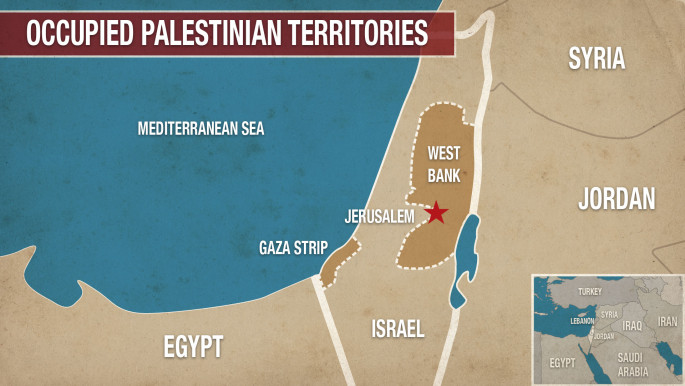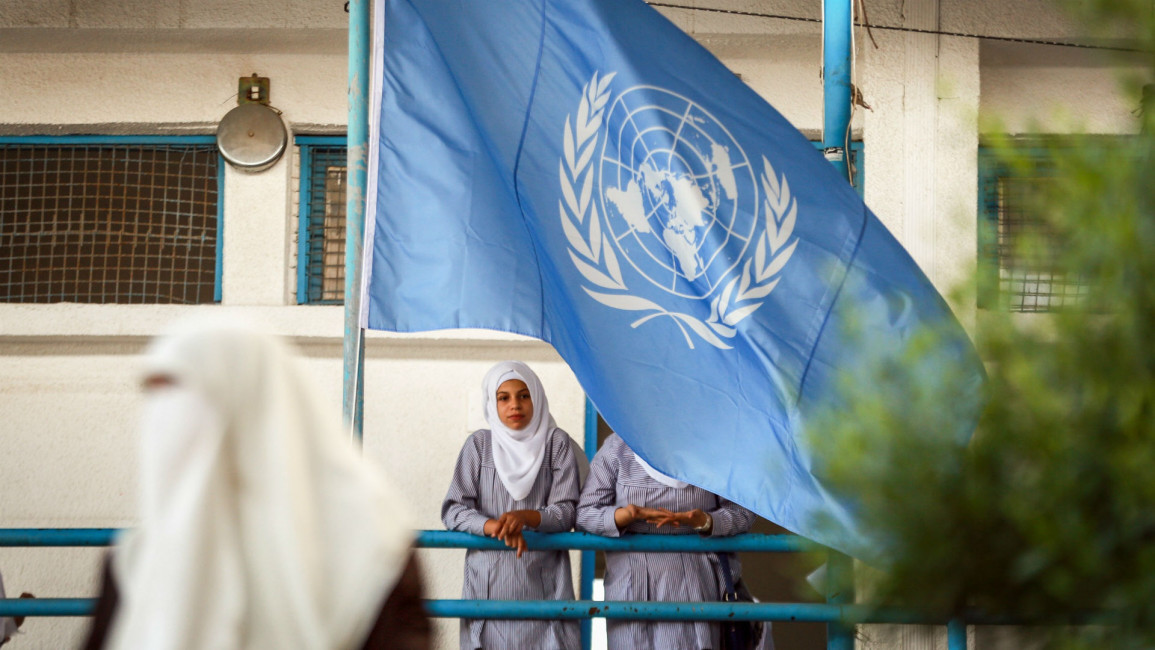Crisis looms after UNRWA closes in northern West Bank
Crisis looms after UNRWA closes in northern West Bank
Residents warned of an impending crisis after the United Nations Relief and Works Agency withdrew its services from the northern West Bank, after being a lifeline for many Palestinians.
3 min read
UNRWA provides services for tens of thousands of Palestinian refugees [Anadolu]
The United Nations Relief and Works Agency, which is assigned to deal with Palestinian refugees, closed all its offices in the northern West Bank this week, leading some to warn of a "humanitarian disaster" due to people's reliance on its aid and services.
Hundreds of Palestinian families in the northern West Bank rely on the UNRWA's educational and medical services since being displaced in 1948.
The agency had recently reduced its services citing a lack of funding, which Palestinian refugees protested.
The crisis was exacerbated when the agency issued e-cards instead of food to refugees.
The head of the Balata refugee camp in Nablus, Ahmed Thuqan, told The New Arab that 48,000 refugees receive food aid from the agency, but only 36,000 had been issued the new card, leaving 12,0000 without aid.
After Palestinian refugees held protests, the agency decided to suspend its work in all northern West Bank refugee camps until further notice.
"The suspension of operations is due to staff receiving unacceptable threats from people in the popular committees in the camps," agency spokesman Kazen Abu Khalaf told The New Arab.
 |
|
| [Click to enlarge] |
"We are a humanitarian agency that doesn't have a security force to protect our staff," he added.
The decision means many facilities, including UNRWA run schools and medical facilities have closed.
The agency was also responsible for rubbish collection in northern West Bank refugee camps, a service that has now been suspended.
According to agency statistics there are 419,000 refugees living in camps in the West Bank.
"We are afraid of the effects if UNRWA doesn't return to work," said Iyad Abu Rajab, who lives with his family in the Balata refugee camp.
"During the past two days rubbish has piled up at the entrance of the camp and alleys...there are 28,000 refugees inside," he said.
"The clinic that everyone relied on is no longer seeing anyone," he added, wondering what would happen to the elderly who suffer from diseases such as diabetes if the clinic remains shut.
In the Noor Shams refugee camp in Tulkarem, the health centre has also closed and cleaners have stopped rubbish collection.
One of the camps residents, Murad Salman said that one of his neighbour's children suffered a severe flu, forcing his father to take him to a hospital in the city at great cost, whereas the son would have received free treatment at the agency run clinic.
He said that many other residents would not be able to afford medical costs.
"The decision taken by the agency is a purely political decision based on the fact that it is a friend of the Israeli occupation. It is hostile to the Palestinian people and is seeking to liquidate the Palestinian refugee issue," Thuqan said.
UNRWA has sustained Palestinian refugees since their mass displacement in 1948. Although it has often drawn criticism, and Palestinian critics have said that the agency allows the status quo to continue, many view the agency as a necessary evil.
Meanwhile Thuqan warned that if the issue was not resolved within a few days, living conditions in the camp will further worsen leading to anger from residents, especially as families prepare for the holy month of Ramadan.



